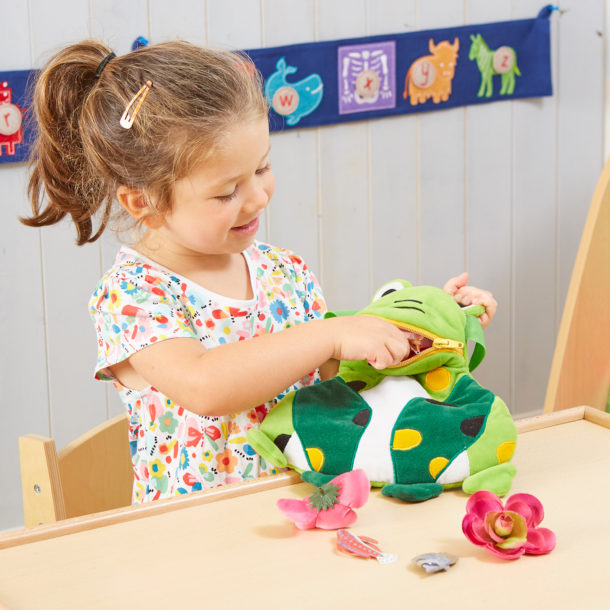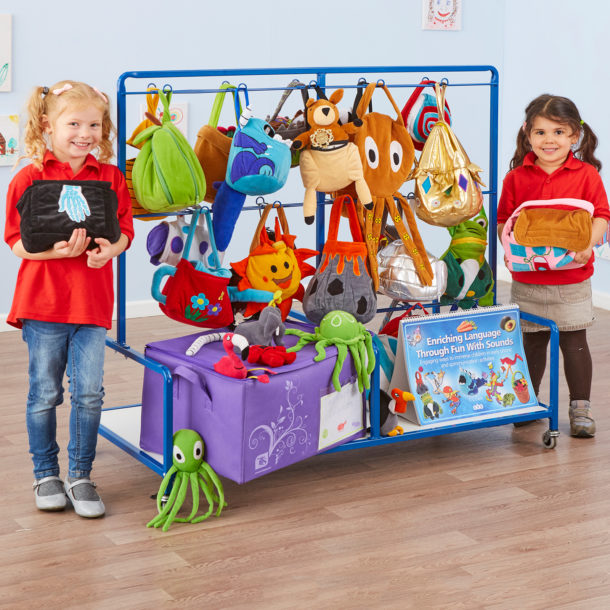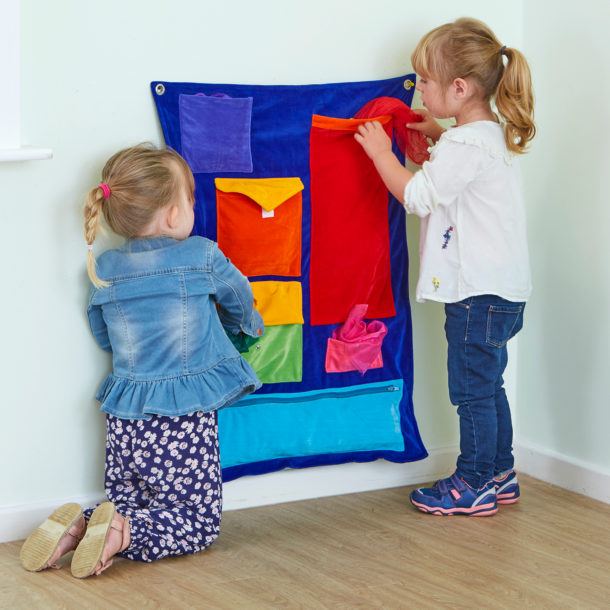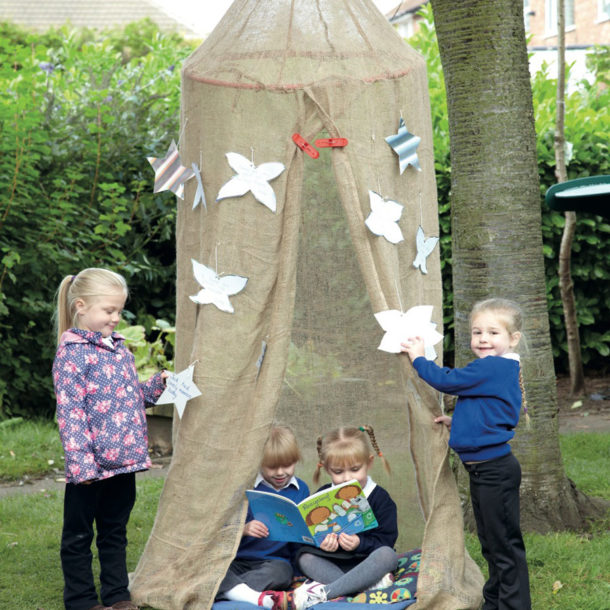Support children to speak with confidence and fluidity.
Wonderful Words
‘We want children to have luscious language’, Catherine Clarke, Early Years Educator at TTS, explains to an eager audience at the NDNA conference in June. By having a better command of language, children can be more precise, detailed and expressive when they communicate and share the stories in their flourishing imaginations.
Language unlocks potential
It is a high priority to be effective communicators. Certainly, to meet the challenges and opportunities of the future, children need to confidently communicate their needs, opinions and experiences. After all, as early years practitioners we are preparing young children for their future as they progress through education and then on to the workplace. By building strong foundations you can give them the best possibilities without being constrained by communication and language.
Supporting vocabulary enrichment
Treasure baskets can help support language development for the youngest of children. Model the use with rich vocabulary and encourage children to describe not only how something looks, but how it feels and what noises they can make. Why not introduce children to the vast colour pallet of crimson, ruby, rose, copper, burgundy and magenta? There are far more descriptive words than simply red!
Language acquisition
Support children’s language acquisition as they continue to grow by giving them new words in context. Our language originates from our surrounding environment, so hearing words being used in relevant situations and scenarios to fully understand the use of each new word they use.
Role play scenarios provide opportunities to provoke rich conversations where children can speak with confidence and fluidity. Practitioners should use and model rich and elaborate lexicon through conversations during play. This will not only gift children with an extensive range of vocabulary but crucially help them understand how to apply it correctly.
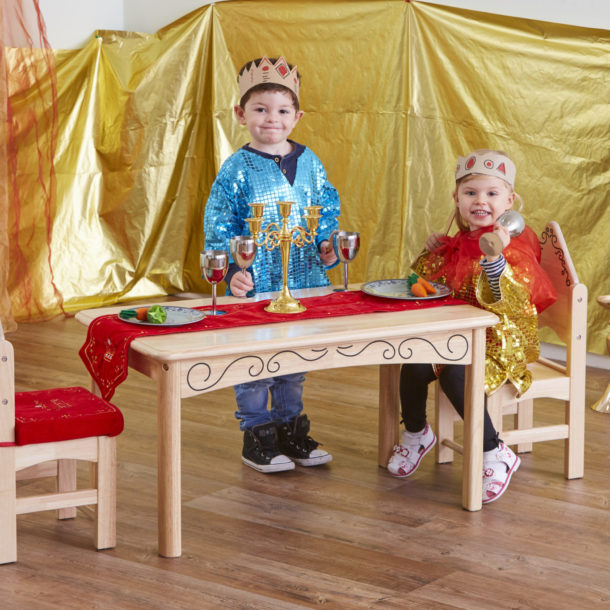
Role play is a great way to explore language children might not be familiar with in a contextual way
Reading and writing
The ability to read and write originates from developing a good level of communication, after all, this is the prime area. When children hear new words during play, even if they don’t understand them, they will have a better chance of de-coding these words when they begin to read.
Small world play is a fantastic way to inspire and foster the use of rich language. Provide children with ways to create their own mini locations for mighty adventures. They might create worlds of wizards, lunar landscapes or super hero lairs. Consider sensitively scaffolding children’s learning by assessing when it is appropriate to be part of their conversations and when to step back. Take the time to enjoy listening to how their language has developed and bask in the stories they tell.
With thanks to Angelica Celinska for writing this blog. Angelica has 10 years of experience working in the Early Years and Primary sector with a Masters in Early Years Education from the Institute of Education, University College London (UCL).

